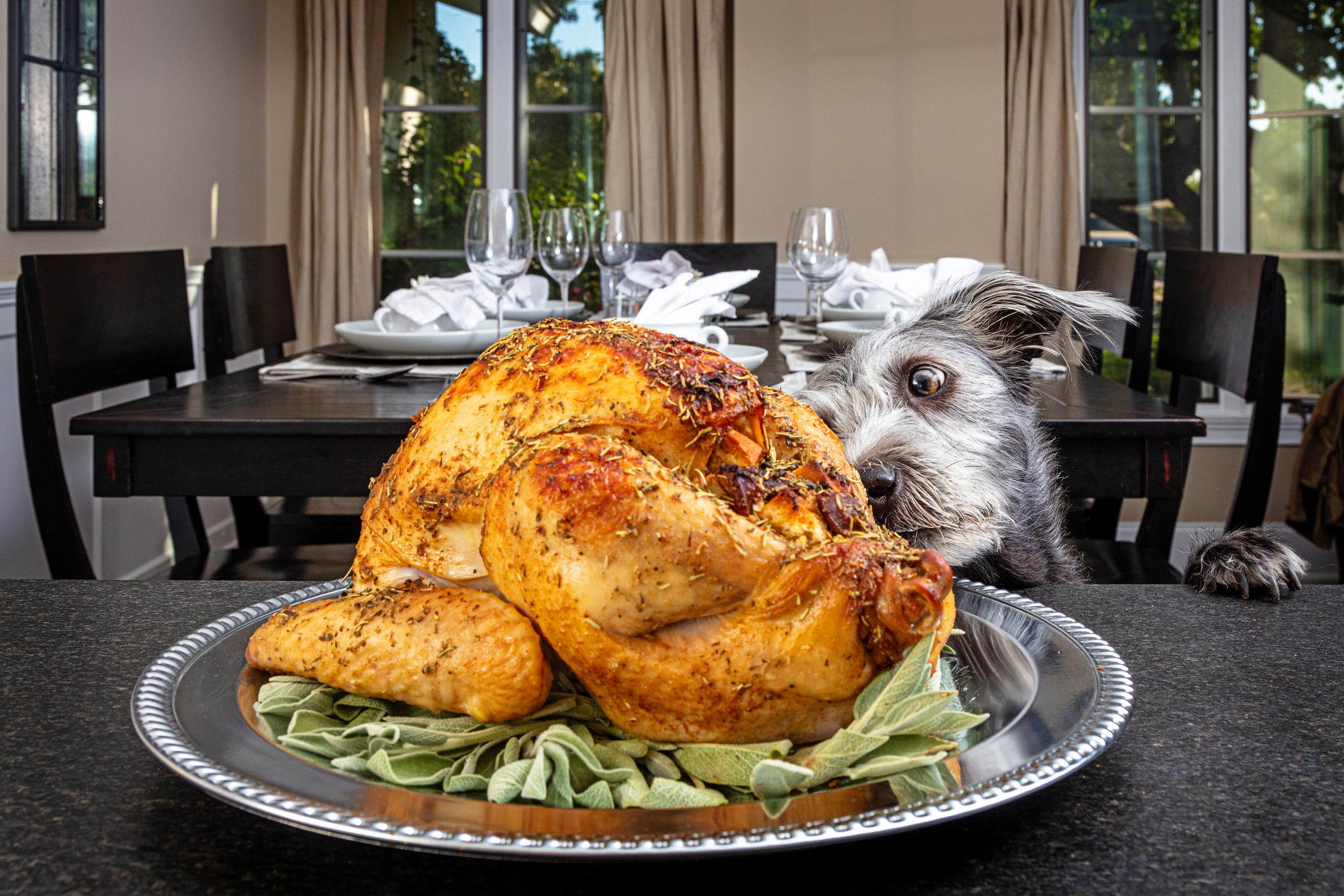5 Thanksgiving Safety Tips for Pet Parents
Doctor of Veterinary Medicine

While efforts are made to answer all questions as quickly as possible, if an immediate answer is required or if your pet is in need of urgent or emergency care, contact your pet's veterinarian immediately.
Doctor of Veterinary Medicine

You will receive an answer from Dr. Lindsay and our vet/tech team as soon as possible, usually the same day.
All answers are provided for informational or educational purposes only, and are intended to be a supplement to, and not a substitute for, the expertise and professional judgment of your pet's veterinarian.
It may be necessary to consult your pet's veterinarian regarding the applicability of any opinions or recommendations with respect to your pet's symptoms or medical condition.
CloseDoctor of Veterinary Medicine

An error has occurred, please reload the page and try again.
CloseDoctor of Veterinary Medicine

While efforts are made to answer all questions as quickly as possible, if an immediate answer is required or if your pet is in need of urgent or emergency care, contact your pet's veterinarian immediately.
There is no answer related to your question

Thanksgiving is right around the corner, and whether you’ll spend the day basting the roast to juicy perfection, or just looking forward to relaxing with family, holidays are the worst time to end up at the emergency vet. Yet, Thanksgiving can be one of the most dangerous holidays for dogs and cats.
Enjoy a restful holiday this Thanksgiving with these five tips to keep your four-legged family members safe.
1.Keep Your Eye on the Bird.
From the moment you bring out the raw, frozen turkey, your pet might obsess over sneaking a taste. Pets don’t care if the meat is still frozen, not yet cooked, or piping hot out of the oven. Keep in mind that even pets that are trained, those that are not believed to be able to reach the countertop, and those that don’t seem interested in the turkey may still give in to temptation the moment they’re left alone with the main course. It’s not just a matter of advising your guests to eat around the bite marks - gobbling up a huge portion of bone-in poultry can lead to a veterinary emergency like a gastric obstruction.
Set up a safe place for your pet to hang out anytime you’re not available to supervise them. Your pet might get bored while you prep food, dine, and entertain guests, but they won’t be underfoot, and your turkey will be safe from pilfering paws.
2.Don’t Let Your Pet Get Stuffed.
Many Thanksgiving foods are safe to share with pets in moderation. But between well-meaning relatives that sneak portions to pets, drop food on the floor, or otherwise offer your pet a taste, all of those bits and bites can really add up. Dogs are highly susceptible to pancreatitis, an inflammatory health condition that can be life-threatening. Just one fatty meal can cause a pancreatitis flare-up in dogs. Cats are less sensitive to fat and generally less likely to overindulge, but can still suffer gastric upset if they overeat rich food.
If you’d like to share food with your pet, set aside a small designated portion, and only feed your pet from that bowl. Most dogs and cats are happy with a few bites of white turkey meat without the skin. Sides with little to no additives, like green beans, mashed potatoes, and yams can be offered, especially if you save your pet a plain portion before mixing in butter, seasonings, and other potentially harmful (though delicious to humans!) ingredients. Even better, serve your dog or cat their own festive Petsgiving dinner with turkey flavored pet food and treats.
3.Watch Out for Turkey Day Trotters.
While football players are dashing for the endzone, many dogs and cats make a dash of their own out the front door on Thanksgiving. As you greet guests carrying armloads of pies and sides, chances are you’ll be too distracted to notice your dog or cat making a break for it. Make sure your pet is far from the front door this evening, safely tucked away in a separate room or behind a pet gate.
4.Hold the Onions and Garlic.
Onions and garlic contain compounds that are known to cause red blood cell damage and severe anemia in cats and dogs, especially in concentrated, powdered forms found in seasonings. While it’s unlikely that the small amount of seasoning used in Thanksgiving fare is unlikely to cause an adverse reaction in pets, it’s not known how much they can safely consume. Garlic is less toxic than onions, and small amounts are used as an ingredient in some pet foods. Even so, to be on the safe side it’s best to only offer pets foods that have not been seasoned with onions or garlic.
5.Take Out The Turkey Trash
Even after they’ve been gnawed clean by your guests, turkey bones pose a dangerous temptation for pets. Cooked bones are hard and jagged. Leg bones, in particular, tend to splinter, though all cooked bones are unsafe for pets to eat. Bones can cause gastric obstruction, internal bleeding, choking, and bowel perforation, life-threatening emergencies that can be fatal. Always store turkey and other leftovers in a sealed container that your pet cannot access, and discard bones outside in a dumpster or trash receptacle that your pet cannot reach.
 Swipe
Swipe


















